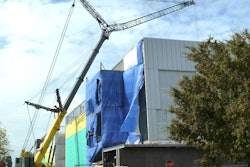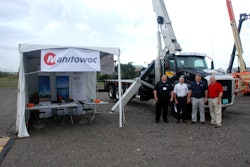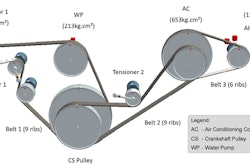The U.S. Department of Energy's (DOE's) National Renewable Energy Laboratory (NREL) recently received four fuel cell hybrid vehicles - advanced (FCHV-adv) on loan from Toyota through a two-year Cooperative Research and Development Agreement. These vehicles will help NREL enhance its research related to hydrogen fueling infrastructure, renewable hydrogen production, and vehicle performance.
"We're looking at the whole system--from renewable hydrogen production and vehicle fueling equipment to the impact of driving patterns and behavior on vehicle performance," says NREL Laboratory Program Manager for Fuel Cell and Hydrogen Technologies Keith Wipke. "Because the vehicles will be four or five years old by the time our two-year loan ends, we will also be able to observe extended durability and reliability, which is critical to their commercial success."
These vehicles are representative of many fuel cell hybrid designs being proposed by automotive companies today. Toyota plans to introduce a fuel cell hybrid sedan to the U.S. commercial market in 2015.
NREL will showcase the vehicles on loan at a variety of events to educate the public about advanced vehicle technologies and to solicit feedback for assessing consumer acceptance and interest in such vehicles.
Based on the Toyota Highlander mid-size sport utility vehicle platform, the FCHV-adv has a fuel cell system with lightweight high-pressure hydrogen gas tanks, an electric motor, a nickel metal hydride battery and a power-control unit that determines the split of power from the battery or the fuel cell stack to power the vehicle. When the fuel cell is in use, hydrogen is fed to the fuel cell stack where it is combined with oxygen from the air. The electricity produced by this chemical reaction is used to power the electric motor and charge the battery.
In addition to a high fuel economy (estimated 68.3 miles/kg on-road fuel economy, as verified in 2009 and documented in the Evaluation of Range Estimates for Toyota FCHV-adv report), the vehicles emit no harmful tailpipe emissions--water vapor is the only byproduct.
The vehicles on loan to NREL are fueled with renewable hydrogen made from wind and solar energy thanks to the Wind-to-Hydrogen Project, which uses wind turbines and photovoltaic arrays to power electrolyzer stacks that split water into hydrogen and oxygen. Housed at NREL's National Wind Technology Center, the Wind-to-Hydrogen Project is funded by the DOE Office of Energy Efficiency and Renewable Energy's Fuel Cell Technologies Program.
NREL is hosting a contest for students to design graphic decals for use on the vehicles. Students who are currently enrolled in a graphic design program at a university, community college, or technical school in the Denver Metro area are invited to participate. Three designs will be selected based on adherence to the design specifications and themes described on the contest webpage at www.nrel.gov/hydrogen/design_contest.html.



















